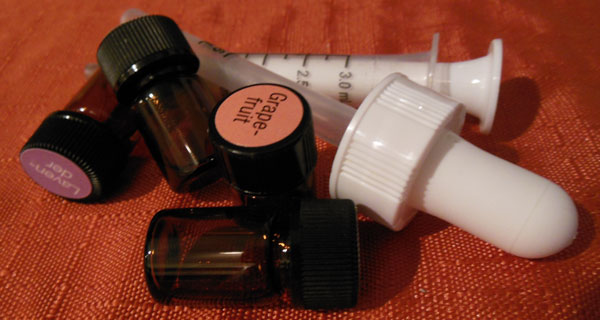A major part of the crunchy lifestyle is avoiding the introduction of foreign, unnecessary, or chemical-based products into your body. So when you (or worse, your mini-mes) are feeling under the weather or happen to injure yourselves, what natural solutions do you have in your arsenal?
After getting pregnant a little over a year ago, I became especially interested in natural remedies and homeopathy as a way to avoid mainstream medical treatments. I have tried many things along the way, and while not all of them worked as advertised, there are a handful that I can’t live without. Here is a list of my top 8 must-haves for a crunchy first aid kit:
1. Coconut oil
From diaper rashes to baking substitutes, from lotion to personal lubricant, coconut oil has many places in the crunchy lifestyle. With natural antibacterial and antifungal properties, coconut oil is also great for diluting essential oils for use topically and soothing most cuts, scrapes, burns, and bites. My favorite use? As a chemical free lotion for my six month old (I attribute his never having a diaper rash to our use of coconut oil).
2. Essential Oils
Throughout history, essential oils have been used for therapeutic and medicinal properties. They can be diffused into the air or applied directly to the skin (often diluted with a carrier oil). There are different uses for each of the many types of essential oil but the two I can’t go without are tea tree and lavender. Tea tree oil is a natural antiseptic so I pair it with coconut oil for a first aid cream and add it to water and vinegar for homemade cleaning products. I use lavender essential oil as a method of relaxation in the evenings (diffused and applied to the skin) and to soothe irritated bites from the monstrous mosquitoes in Texas.
3. Epsom Salt
Epsom salt, or magnesium sulfate, is most commonly used in a bath. Magnesium is easily absorbed through the skin and an Epsom salt bath can help ease sore muscles and migraines, eliminate toxins from the body, and relieve constipation. And what mother doesn’t need a reason to escape to a warm bath alone on occasion?
4. Arnica
Arnica is commonly used for its anti-inflammatory and pain relieving properties. It can be diluted into a tincture or salve to be used topically on bruises, muscle swelling, aches, and sprains (on unbroken skin only) or taken internally in pill form. Arnica can be toxic when ingested so be sure to follow the dosage and directions carefully.
5. Pre/Probiotics
Probiotics are bacteria that are beneficial to the digestive system. Prebiotics are the food that probiotics need to survive, so they are most efficient when taken together (in yummy forms such as yogurt and kefir). Consumption of pre- and probiotics can increase nutrient absorption, relieve a variety of tummy troubles, and help keep your internal flora balanced while on antibiotics.
6. Aloe Vera
Natural aloe vera is my favorite natural treatment for burns. It also soothes dry and irritated skin and, when ingested, can relieve heartburn and symptoms of IBS. It lowers blood sugar levels, treats acne, soothes psoriasis and eczema, and prevents scarring and stretch marks. And you can grow it anywhere with sunlight (as long as you remember to water it)!
7. Baking Soda
While many crunchies are familiar with the amazing cleaning purposes of baking soda, some of you may not know what medicinal uses baking soda has to offer. It is often used as a natural, fluoride free alternative for brushing (and whitening) teeth. It can also help stomach pain that is caused by acid, such as ulcers, and, when applied as a paste, can help pull splinters out painlessly. At around $1, there’s no reason not to have a box around.
8. Activated Charcoal
Activated charcoal is a tasteless, odorless, fine black powder that absorbs toxins and chemicals. It is most often used to prevent poisoning after the ingestion of a toxic material, but can also be used as a dietary supplement, to draw poison out of spider bites, and to aid in healing dental infections. Like baking soda, you can whiten your teeth just by brushing with it.
There are many more items in my crunchy medicine cabinet, but those are the 8 that I feel are most important. While they work (wonderfully) for me, I am not a doctor and this is not medical advice–just the anecdotal experience of a crunchy mom.
What’s in YOUR crunchy medicine cabinet?

